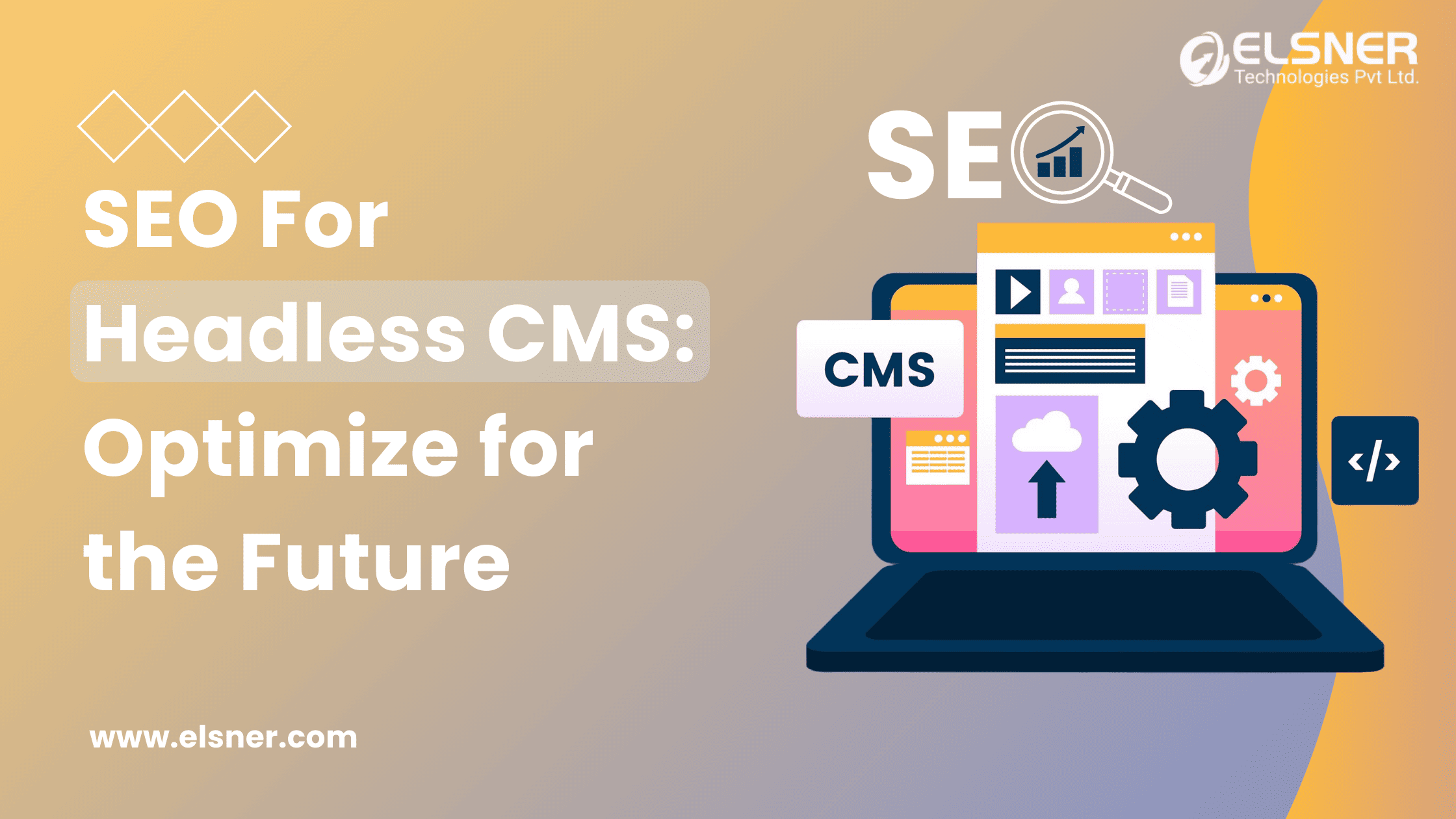- Why do you need SEO for Tourism?
- How to Design Your Travel Website’s SEO Strategy?
- Keyword Research:
- Ensure What Terms People Search for
- Technical SEO
- Secure your Domain
- Have a Mobile-Friendly Website
- Page Load Speed
- Meta Titles and Descriptions
- Ensure No Broken Links and Minimal Redirects
- Image Alt Tags and Image File Names
- Web Page Optimization
- Write High-Quality Content
- Keep the Title Catchy.
- Use Different Section Headings.
- Remember your Target Audience.
- Take Care of the Length of your Content.
- Add FAQs
- Use images and other types of content
- Expand your Online Presence
- Optimize Your Business for Local SEO
- Social SEO
- Start a Website Blog
If you are into the travel business, you have seen the worst business phase of your life in the last two pandemic years. Yes, the Covid-19 pandemic has hit the tourism industry ruthlessly and actively.
Countries were locked down, and people were trying to stay safe. Thankfully, the pandemic is not as lethal now as it was, and governments across the globe have revoked travel sanctions locally and internationally.
It is high time to evaluate and design a unique and result-driven SEO for tourism. Search engine optimization is the best marketing strategy for the travel business as millennials look for travel destinations, book hotels, and make travel itineraries after conducting thorough research online.
Your business must be visible to them when they search for you. With the right SEO strategy and white-hat SEO measures, you can increase your bookings and get more sales and revenues.
Why do you need SEO for Tourism?
Before we delve into designing a successful SEO for the travel industry, it is important to understand why you need SEO for your travel business.
Search engine optimization is a digital inbound marketing technique that helps your business rank higher on search engine results. It is a comprehensive technique with a wide range of steps. Let’s check out some statistics to know why SEO for tourism is crucial.
As per the study, 81% of users search online when they want specific products or services.
54% of all users trust websites that rank higher on SERPs.
Getting organic traffic is more cost-effective than other digital marketing approaches.
When someone searches for, Let’s say, BEST HOTELS IN WASHINGTON, Google will show a list of hotels in the city. Check out the image below.
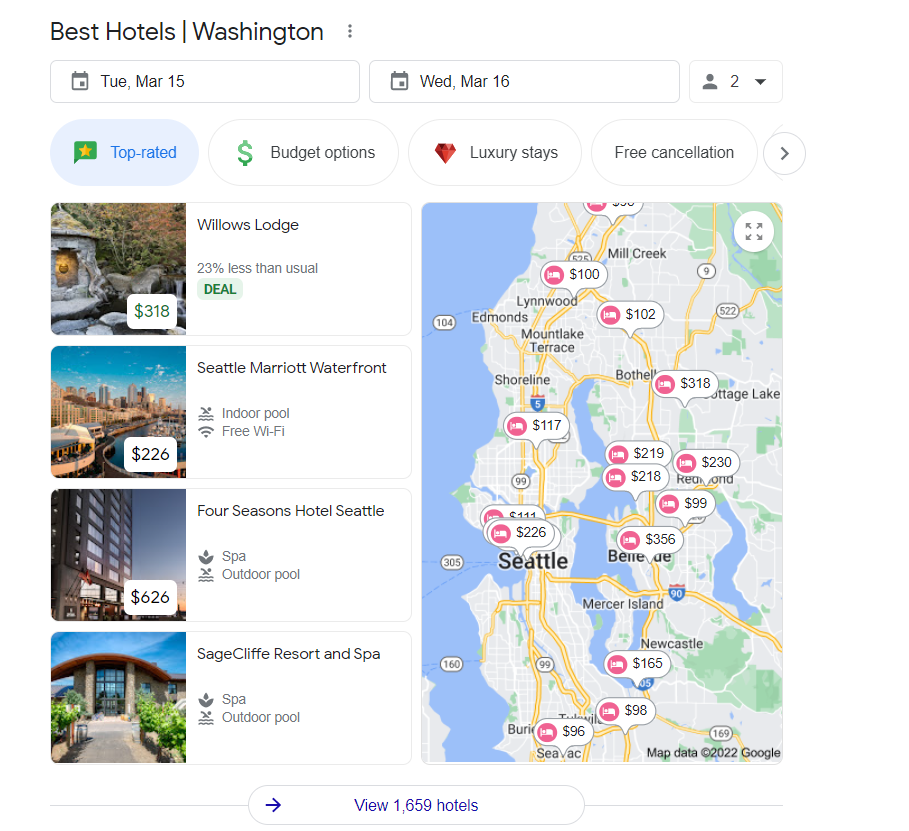
[Image Source: https://bit.ly/3tq2knF]
If you own a hotel in Washington DC, your SEO strategy will determine whether your hotel makes the place in the Google SERP or not for that particular keyword.
Now Imagine you are visiting Washington DC and staying in the best hotel. What will you do to find the best hotel in DC? You will turn to Google. You will check basic amenities, photos, location, reviews, and ratings to determine whether the hotel suits your requirements or not.
Now, I hope you understand why SEO for tourism is crucial for your business.
The main objective of SEO for a travel agency is to ensure that your website ranks higher on SERPs. When your website is highly optimized for SEO, it will rank higher for each keyword used in your strategy.
When users see it, they will trust you, as Google says so. You will get more qualified leads, and turning these genuine leads into conversions will not be a huge problem.
Recently, Google conducted a research study for the tourism industry. The study found out that a large percentage of leisure and business travellers use search engines for their travel plans.
Check out the image below:
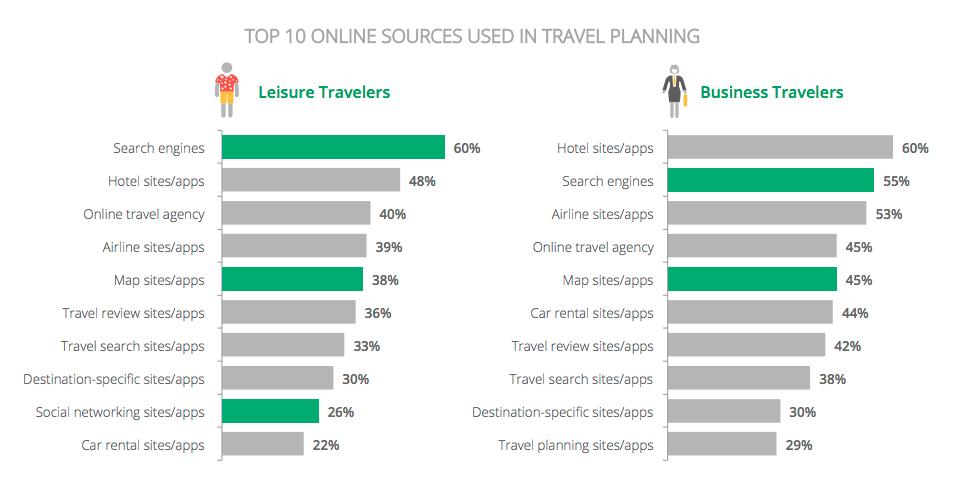
[Image Source: https://bit.ly/34c8f7m]
One thing is clear from this study. If your website is not ranking higher for relevant keywords, you might not get new, genuine leads for your business.
One of the noticeable things you need to understand from this study is that even if there are many dedicated travel websites such as booking.com, airbnb.com, tripadvisor.com, and others, people still prefer search engines to plan their trips.
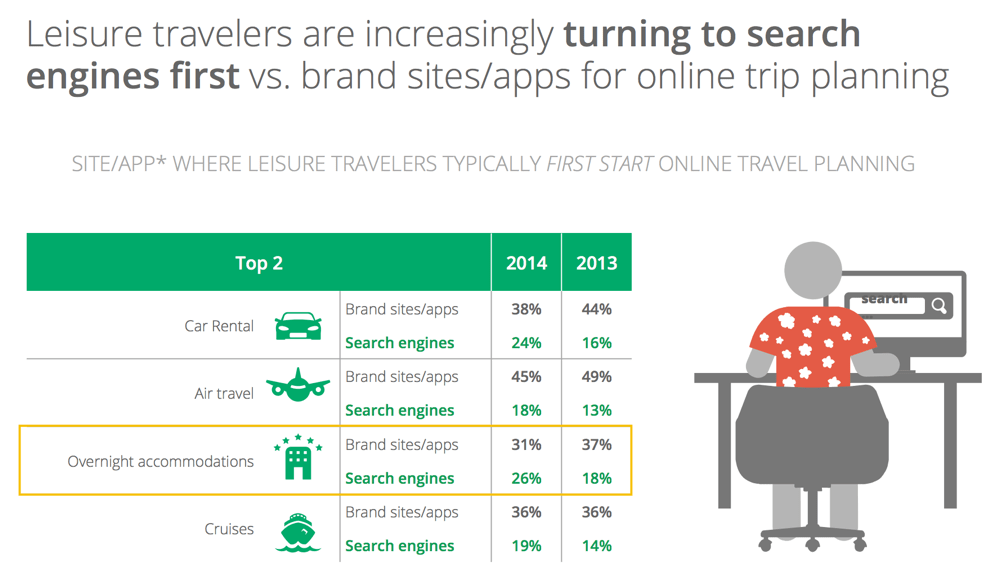
[Image Source: https://bit.ly/3purK2b]
In addition to that, a study also pointed out that 90% of travelers find reviews trustworthy and accepted that online reviews influence them.
Another study showed that 90% of people do online travel research.
What do these studies and researches reveal?
You need to be visible online to remain in the business.
You can be on the top of the search engine results only if you have a result-driven, comprehensive, and superior SEO for tourism strategy.
Now that we have learned why SEO is important for your travel business, we will discuss designing an SEO strategy for your travel business website.
How to Design Your Travel Website’s SEO Strategy?
If you don’t have an in-house SEO team, the best thing is to hire professional SEO services. You can search for them online. Find an SEO agency that offers SEO for tourism services. Check out their reviews and a portfolio to decide better.
When you are doing SEO for your travel website, there are many things you have to take care of. We will check out all the steps one by one.
Keyword Research:
This is the most basic thing.
Your website will rank on search engines only when you have used the right and relevant keywords in your website and off-page content.
The main goal of keyword research is to find what your target audience is searching for. All you need to do is use these keywords in your website text and off-page content for link building.
Before you start your search for keywords, you need to identify your target audience. Conducting a thorough competitor analysis can also help you check out what they are doing. Additionally, utilizing Google Trends API will help you to gain insights into search trends and user interests.
Most digital marketers don’t understand this basic thing and always bypass the keyword research part, mostly because it takes too much time. They believe that they know what they want to rank for.
However, the more vital thing is what your audience wants. When you consider what your audience wants and then use keyword data to use insights, you will get good, noticeable results.
Though many keyword planner tools are available, your keyword research strategy should be audience-oriented.
For example, if you own a vegetarian restaurant in New Jersey and want improved keywords based on your target audience, you need to learn something about your customers.
These questions might help you:
- What type of vegetable dishes are your customers searching for?
- Who are your customers who prefer vegetable dishes?
- When are they searching for vegetable dishes? Do they search on specific occasions such as festivals, holidays, or weekends?
- How do they search for vegetable dishes? What exact phrases do they search for? Do they prefer mobile phones or desktops for search inquiries?
- Why do they search for vegetable dishes? Do they look for specific ingredients in the dishes they search for?
- Where are they located?
Now, the last question that is the most vital one- How can you offer them the best content about vegetable dishes you serve to lure them to visit your website? Additionally, you may consider partnering with Uber Eats Merchant to showcase your offerings and attract a wider online audience effortlessly.
These questions might help you get relevant phrases, and then you can take the help of keyword research tools to determine your keywords.
Ensure What Terms People Search for
You might have a different way of describing things, but it might not be the case with your audience. You need to know what terms they use to describe those particular things.
Research about that to use those specific terms as your keywords.
How to discover keywords?
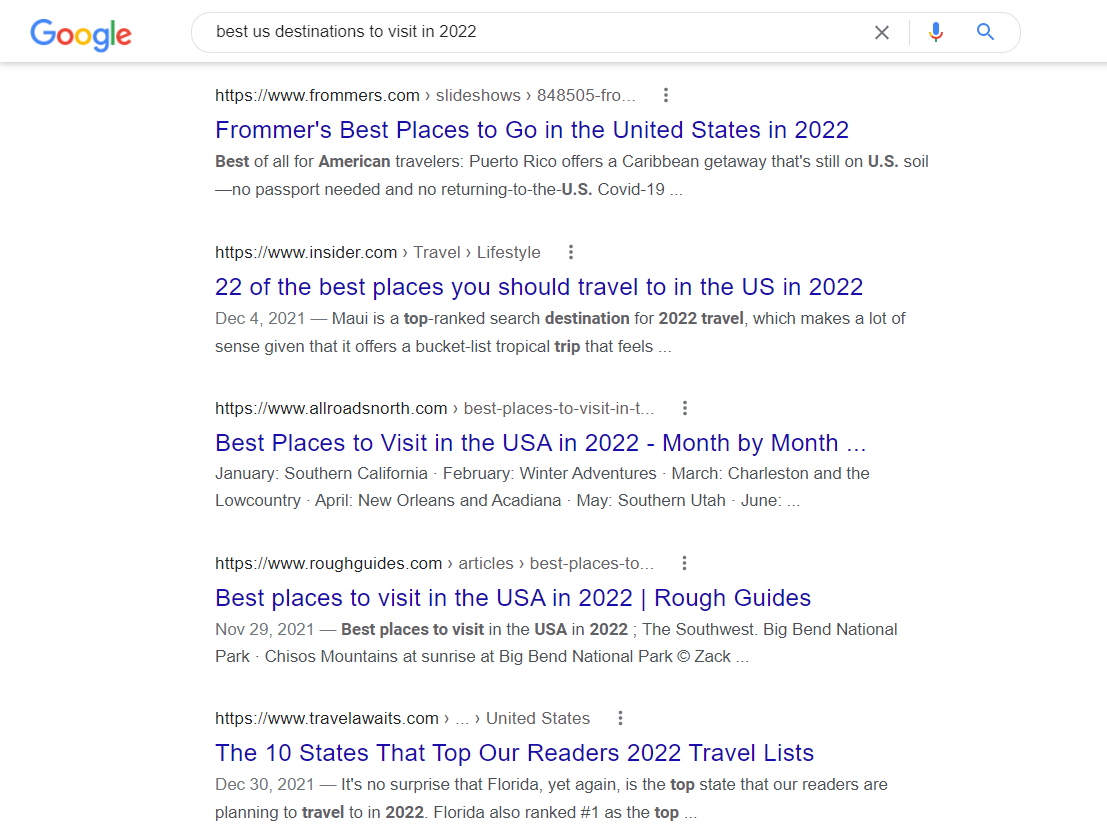
[Image Source: https://bit.ly/3sCk5kD]
You might have some keywords in mind related to your products, services, or other offerings.
Now, you need to add those keywords in a good keyword planner tool to check out their monthly search volumes and, at the same time, similar keywords.
A good keyword research tool will also show you a list of similar questions, topics, and other similar questions. It might help you use the right keywords and questions in your content.
For example, if you type “vegetable dishes” in your keyword planner tool, you might get relevant terms such as:
- Best vegetable dishes near me
- Best vegetable restaurant near me,
- Delicious Vegetable dishes
Though it is an obvious choice to go for keywords that have a larger search volume, you can go for keywords with lower search volume as you will not face any competition for those keywords.
Technical SEO
To ensure that your website ranks higher on search engines, you must perform technical SEO. Some of the activities you can do as part of the technical SEO are:
Secure your Domain
Having a secured website is essential to ensure that your audience does not hesitate while clicking on it. Ask the SEO company to secure your domain so that your users feel safe while visiting your website.
Have a Mobile-Friendly Website
Millennials use their smartphones to search for any products or services. Having a mobile-responsive website is the need of the hour. Ask the developers to develop a mobile-friendly website that offers an excellent user experience to users whether they open it on their mobiles, tablets, or laptops. If your website does not provide a good user experience on mobile or other devices, users will switch to your competitors, and you will lose their trust forever.
Page Load Speed
What will you do when the website you just clicked on does not open instantly? You will not wait. You will go to other results. Similarly, when users find your website taking too much time, they will leave your website. Your page’s loading speed affects your SEO. Also, Google considers the page’s loading speed a direct ranking factor. Studies show that people leave the website when a website does not open in three seconds. Google also considers it a bad experience and will rank your website accordingly.
Meta Titles and Descriptions
Meta titles and descriptions will reveal what is there on your page. They are separate pieces of HTML code. While writing meta titles and descriptions, you have to make sure that they are catchy and give insightful information about the page content. Also, you need to add keywords in your meta titles and descriptions for ranking purposes.
Ensure No Broken Links and Minimal Redirects
Broken links are the links that do not work or are low-authority links. You have to get rid of such broken links as part of your SEO. To ensure that you need to keep monitoring all your backlinks from time to time and remove all broken links as soon as you find them. Keep auditing and backlink monitoring to fix technical issues to avoid such problems.
Image Alt Tags and Image File Names
Most digital marketers use default names for images on the website, but it is a bad practice. You can add information about the image and let Google know what the image is about. You can give a unique description and file name to an image. When you add ALT text to your images, Google will understand the relevancy of your image and will rank your website accordingly.
In addition to that, ensure that your image files are of small size. When you use images with big sizes, it will affect your page load speed.
Web Page Optimization
The next step of your SEO for tourism strategy is to optimize your website pages. Optimizing your website pages is crucial to let Google know that these pages offer relevant, insightful information for the right keywords.
Well, if you have confusion as to how to optimize web pages? Here is a list of things you can do:
Write High-Quality Content
The first and foremost thing to do is to write relevant, original, and highly engaging content, from finding the appropriate topic for a blog to writing it, researching a lot, and finding relevant keywords to add to the content. Write about the latest happenings in the tourism industry, cover famous tourist destinations, or talk about travel itineraries. Hire the best writers who can come up with compelling content that lure your audience instantly. Use keywords in the content in a manner that does not look enforced. Research a lot about the topic and then write to get maximum hits.
Keep the Title Catchy.
Keeping a title catchy is a good thing as it will manipulate readers to click on it. You can develop some impromptu titles that might help get more clicks than ordinary titles. For example,
Rather than trying this
Tips to consider while hiring web developers for your project
Try this:
What Are the Best Virtues of an Ideal Developer?
Also, you need to ensure that you use an H1 tag. Adding your primary keyword in the title is also a good thing.
Use Different Section Headings.
The H1 tag also adds more subheadings such as H2, H3, and H4. Also, work on your content’s readability. Ensure that there are no grammatical errors in the final copy. Incorporate your keywords naturally.
Remember your Target Audience.
Don’t write for machines. You need to write for your audience. Identify your target audience and provide them with the latest information or insights about the topic. You will not be able to serve the purpose of getting more leads if you fail your audience. They will click on your page to find the right information. If they don’t see it, they will lose trust, the most important thing in the relationship. Don’t let it happen. Provide them value, and they will reciprocate in a meaningful manner.
Take Care of the Length of your Content.
There is a misconception in the SEO industry that longer is better. However, it is a partial truth. It is not always the case. You need to write a copy in words that perfectly covers the topic. Keeping content short is also not a good thing as it will not rank.
Add FAQs
Sometimes, users have a specific set of questions, and they are looking for answers. Adding a FAQ section on your page might help them find the right answers. Make a list of common questions they frequently ask and answer them in the FAQ section.
Use images and other types of content
Infographics, images, videos, and podcasts are the latest content types gaining popularity. You can add such unique content as and when you find it necessary. Ensure that the content type you choose is relevant and optimized with alt text.
Expand your Online Presence
Having a solid online presence is also vital for your SEO. you can use many approaches to achieve your online presence. For example, you can use various social media channels and reach out to your audience.
In addition to that, you can go for different approaches such as optimizing your website for local SEO listing your business on other directories such as travel directories, online business directories, niche directories, etc.
Link building is another aspect that has shown brilliant results to businesses. Here, you will create compelling copies for blogs and articles and post them on different high-authority industry websites. When you post such blogs on other websites, you will get a backlink. Having a good backlink bank can help you gain higher rankings on SERPs.
When you regularly post on high-authority websites, people will consider your brand seriously. Your target audience and Google- both will come to know that you offer valuable information and insights to users. It will boost your SEO, and Google will rank you accordingly.
Optimize Your Business for Local SEO
Smart digital marketers will never ignore the importance of local SEO while building an SEO for tourism strategy.
Mostly, people search for a product or service with a location added to the search query such as:
- Best Miami Rentals
- Best Hotels in New Jersy
- Best spa services in New York
Another reason to optimize your business for local SEO is to be visible when someone near to your physical business address searches for products or services you offer. Local business optimization is a very crucial part of the digital marketing process. Here is a list of steps you can follow to optimize your website for local SEO:
- Create a Google My Business page for your business and add relevant phone numbers, images, addresses, and business descriptions.
- Add schema information to your homepage in addition to your local address.
- Add relevant keywords with location on your website content to optimize your pages.
- Develop a quality backlink bank from trusted local websites.
- Encourage your users to write online reviews for your business. Online reviews play a huge role in convincing users to offer genuine services.
Social SEO
Though social media marketing might not help you rank your website on SERPs, it can help in other indirect ways. Adding social SEO in your
SEO for travel industry strategy might help you achieve many objectives.
Why do you need social SEO?
- People spend a lot of time on social media networks. All you need to do is find out which social media platform your target audience uses.
- You can use different visual social media platforms such as Pinterest and Instagram to showcase your villas, hotels, and other attractions you might have.
- You can connect with other industry influencers on social media networks.
- If you have a Facebook or Instagram business account, people might visit your page to know about you before making a booking. They might read reviews, check out services, or ask you different questions and queries.
To ensure that you reap the maximum benefits from your social SEO efforts, you need to follow some steps:
- First, create your business accounts on different social media networks such as Facebook, Twitter, Instagram, Pinterest, YouTube, etc.
- Ensure that all your social media profiles are SEO-optimized.
- Whatsapp Business is a new way to connect to your potential customers. You can create a Whatsapp Business profile.
- Ensure that you post regularly on your social media pages. Post creative images, infographics, travel tips, things-to-do type articles, etc. Also, implement dynamic og image to boost social media engagement and increase organic traffic.
- Monitor all mentions of your brand and reply to their comments.
- Also, it is advisable to monitor all mentions of your destinations. If you notice a mention, go there, participate in discussions and answer their questions.
- Facebook and other social media channels also facilitate businesses with paid promotions. You can go for paid promotions to target a specific group.
Start a Website Blog
Travel is a visual topic, and you get an opportunity to lure your audience by creating compelling visuals. For example, if you own a villa in a travel destination, you can attract customers by showing them your properties, such as bedrooms, living rooms, amenities, facilities, etc.
Apart from that, people would love to feel good when they decide to go to a certain destination. They want to feel the experience before going there. That is where a travel website blog comes into the picture.
With in-depth and highly-engaging blogging, you can serve many purposes. You can attract visitors to your website, show them what you have to offer, and at the same time rank higher on SERPs.
Here is a list of benefits of having a website travel blog:
- You can keep your social media pages fresh with regular blogging. Your followers will keep getting new experiences and information.
- You can also build internal links to your property pages with blogging.
- Your SEO for tourism strategy can be successful with blogging, as Google will appreciate your regular efforts to educate your audience.
- You can make your posts more interesting by adding videos, images, infographics, etc.
- You can also attract quality links from other bloggers and websites.
- By adding travel-helping guides, articles, and what-to-do types of blogs, you can make your potential customers understand that you are not just interested in bookings but want to improve their travel experiences.
Conclusion
Search engine optimization does not just help rank your website on SERPs, but, in the long term, makes your brand a valuable and high-authority entity.
When you are making your SEO for tourism strategy, make sure that you take care of all things discussed here to achieve your objectives.
Though SEO is considered a long-term thing, you might see a noticeable change in your website rankings if you follow white-hat SEO techniques with superior content marketing and link-building strategies.


